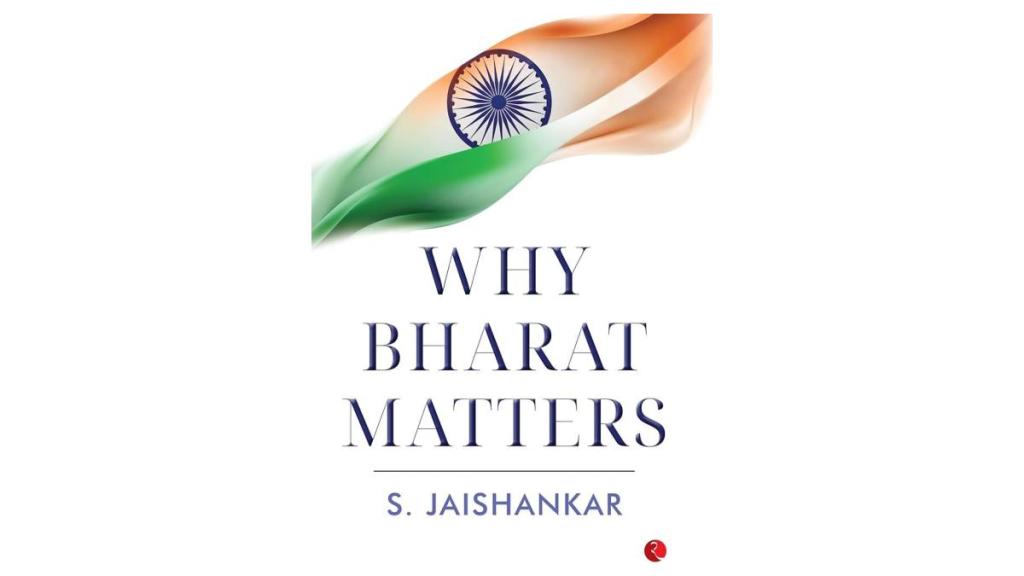There have been several books on the intricacies of India’s foreign policy — some of them by the author’s famous predecessors in the Indian Foreign Service – but Why Bharat Matters stands out for many reasons. First, it has been written by a serving external affairs minister who is still practising what he has or is preaching. That gives the book a certain freshness as it’s not merely just a historical perspective, or what-could-have-been-kind-of-a memoir. Some of the examples mentioned in the book are, in fact, still playing out.
The second reason why the book should be a big draw is the author himself. S Jaishankar, the brilliant and exceptionally articulate minister of external affairs, is not known for pulling punches. In Why Bharat Matters, he has not deviated from his style, though some of the points he has raised in the book are debatable.
Third, the no-frills kind of writing in the 219-page book gives a unique perspective of India’s rise as an independent pole on the global stage, charting its course and manoeuvring its way through the global power equations. What lends credibility to the narrative is that it has been written by a man who has walked the talk in his distinguished career for close to five decades.
The last — and perhaps the most important — reason why one feels tempted to recommend the book is that the target audience isn’t just the foreign policy practitioners or academicians, but the world beyond that. In recent memory, no other book on foreign policy has cared to do that. That’s important as in a globalised world, foreign policy matters to average citizens too. That explains why the book uses metaphors, analogies and narratives to which any Indian can easily relate. Why Bharat Matters uses various episodes from the Ramayana and interprets them from a foreign policy perspective. That is something unique and rarely attempted in India before in diplomatic writing. While the book emphasises the ‘ethical dimensions of the Ramayana’ and their significance in shaping a positive international relations landscape, it surely comes out as an interesting take on crucial lessons that our history has to offer in the domain of realpolitik.
One, however, wonders whether this is a clever marketing and political exercise, as the book was launched in the midst of the frenzied fanfare and celebrations connected with the consecration of the Ram Temple in Ayodhya. It is also noteworthy that the author’s first book was named The India Way. India has given way to Bharat this time in tune with the Bharatiya Janata Party’s recent preference. It is certain that not everyone will agree with Jaishankar’s conclusion that “India matters because it is Bharat” as he has failed to give convincing reasons for that. But that’s a minor quibble, as Jaishankar’s book should bring a new life to the Indian foreign policy discourse long stifled by the allure of consensus and unanimity.
The book offers no easy answers. It doesn’t shy away from the complexities of India’s internal struggles, the challenges it faces in its relationships with powerful nations, or the ethical dilemmas that accompany its rise. But amidst the ambiguity, Jaishankar gives a detailed view of India’s foreign policy since 2014, which, he says, is responsible for the strides in the foreign policy arena, and how seamlessly the Indian state has been maintaining a confluence between the goals of Indian diplomacy and the country’s national developmental agendas.
Some of what he has claimed is certainly valid. For example, there is no doubt that the Modi government has been acing the powerplay of language and messaging, whether it be transforming the idea of Vasudhaiva Kutumbakam into a global aspirational ideal, or presenting India as the ‘Mother of Democracy’. Jaishankar writes, “Developing our own lexicon, concepts, mechanisms and ideas and socialising them in world politics is also a testimony to India’s continued rise. Their unfolding underlines the reality of India’s vigorous participation in global platforms.” Some good examples are the Vaccine Maitri programme and India paving the way for membership of the African Union at the G20 Summit.
A more recent example is the release of former Indian naval personnel from Qatar, just about three months after they were ordered a shocking death sentence. It is to the government’s credit that it was able to bring about the release of all the eight, seven of whom have now returned. The success is definitely attributable to the strategies New Delhi employed: to pursue the case in court, showing respect to the Qatari legal system, while providing the accused with full legal support and counsel; avoid all escalatory rhetoric and public sparring; and, to take the case to the highest levels. The Qatar case is a timely reminder of the importance of quiet diplomacy at a time of brinkmanship and geopolitical conflict, particularly when it comes to relationships where so much else is at stake.
But the author perhaps should have exercised more restraint on the self-congratulatory tone of the book, which looks jarring at times. For example, many would argue that his critique of Jawaharlal Nehru’s “naivete” on Pakistan and China and his “ideological predilections” against the West looks quite unfair. The author’s detailed account of how India today traverses those very roads that Nehru rejected is made from the easy benefits of clear hindsight, and will surely trigger much political controversy. He merely draws on the perspective of Vallabhbhai Patel, Shyama Prasad Mukherjee, B R Ambedkar, and Minoo Masani, who were questioning Nehru’s choices when they were being made in the 1950s.
This is not to say that Why Bharat Matters has totally veered away from realism. Consider what Jaishankar writes: “In 2015, PM Narendra Modi publicly articulated India’s quest to become a global power one day. Some treated it as a statement of arrival when it was actually meant to be an expression of an aspiration… In 2023, the same thinking was reiterated by the PM in a determination to emerge as the third largest global economy.” The author says these are works in progress.
One wonders whether he should have used the same prism while assessing Nehru. “Nehru’s critics felt that he harboured a sense of false internationalism that came at the cost of national interest,” Jaishankar writes. These are very harsh words. Jaishankar could have been less of a BJP politician in his assessment of India’s first prime minister.
Book: Why Bharat Matters
Author: S Jaishankar
Publication: Rupa Publications








